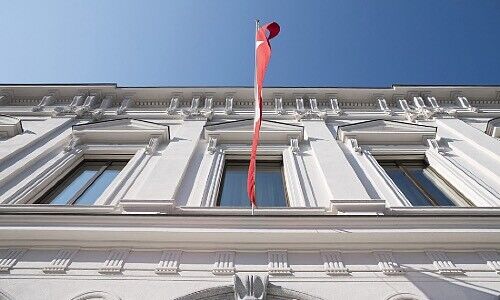The Swiss bank has had years to prepare for the Federal Criminal Court trial. It is seeking to have charges by the Federal Prosecutor's Office dismissed.
Dozens of tons of cocaine, dead bodies and a gang of former professional wrestlers from Bulgaria: The explosive case, which has already occupied courts in Spain, Romania, Italy and Bulgaria, is now also coming before a judge in Switzerland.
As also reported by finews.com, the four-week trial in the canton of Ticino begins Monday in the Criminal Court in Bellinzona. Five defendants will have to answer over the next four weeks.
In a first for Switzerland, one of the defendants is a company. The Office of the Attorney General of Switzerland accuses Credit Suisse of money laundering with transactions of more than 100 million Swiss francs ($109 million) having been concealed.
According to the approximately 500-page indictment, federal prosecutors seek to claw back 42 million francs and are also demanding a fine of 5 million francs.
Client Advisor Arrested
The Office of the Attorney General of Switzerland has been investigating events since 2008 on events that allegedly took place between 2004 and 2007. The process, called «Bulko,» resulted in the arrest of a former Credit Suisse client advisor of Bulgarian origin in Switzerland in 2009. The proceedings have been extended to include the ex-banker and her former employer.
«Credit Suisse formally rejects the allegations made against it in this past-related matter and is also convinced of the innocence of its former employee,» a bank spokeswoman said. Credit Suisse will vigorously defend its position in court, she added.
Partial Victory Achieved?
The law firm representing the bank in court and will reject every single accusation in detail.
On the other side of the case, the Swiss Attorney General’s office can look back on a recent partial success. Last December, the Federal Criminal Court sentenced Zurich-based Falcon Private Bank, to a fine of 3.5 million francs in the money laundering and corruption case surrounding the Malaysian sovereign wealth fund 1MDB.
The Burden of Proof and Predicates
Since the burden of proof lies with the federal prosecutors, the defense is likely to try to poke any holes it can into the evidence.
The case has been under investigation for 14 years and will have to rely heavily on foreign convictions for predicate offenses. In the Spain verdict, important to the prosecution, the so-called Bulgarian cocaine kingpin’s name and his alleged Swiss confidant does not appear.
Courts in Italy and Romania reached verdicts against the alleged gang leader for drug trafficking, but some of them referred to other time periods. Judges in Bulgaria considered essentially the same facts as now Switzerland, reaching an acquittal in 2018.
Furthermore, Credit Suisse has had expert opinions confirming that its organization in the years in question between 2004 and 2007 was compliant with the requirements of the financial supervisory authority at the time. Accordingly, the bank's position is to view the allegations through the regulations of the time.
Statute of Limitations
The accusation of money laundering committed with intent against the ex-CS banker is subject to a 15-year statute of limitations. If only a case of «simple» money laundering were established in the trial, this offense would already be time-barred after ten years.
Even so, the trial is fraught with imponderables. While the bank could easily cope with the fine demanded, corporate convictions are uncharted legal territory in Switzerland and could have an unpredictable impact on other proceedings.




































